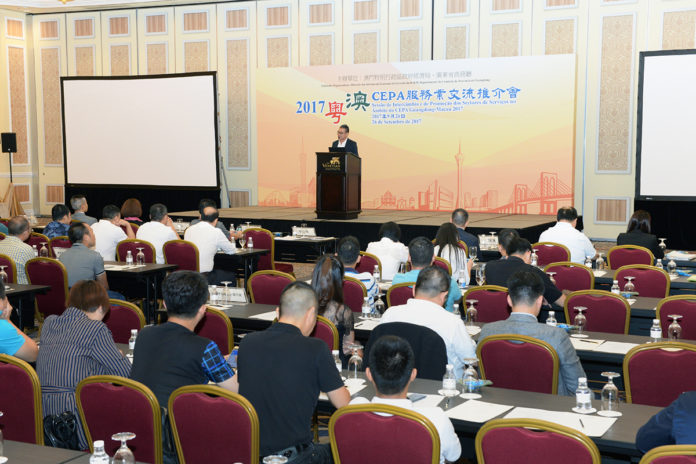Inheritors of old local restaurants in the MSAR could expand their business into the Mainland with assistance from the Guangdonng Restaurant Association (GRA) or other related associations in the city, believes Tan Haicheng, the executive president of GRA.
“[We] can help them standardise their brands so they can develop [their businesses] either through industrial food production or the establishment of chainstores,” Tan told the press on the sidelines of a CEPA (Closer Economic Partnership Arrangement) promotional session yesterday.
The session attracted around 50 to 60 food and beverage firms, according to Tan, who stated that the biggest attraction of Macau for those in the Mainland F&B industry is the massive number of annual visitors. In addition, the developments in transportation between cities in Guangdong Province – which allow easier access between cities, as well as speaking the common dialect of Cantonese – are also factors encouraging Mainland Chinese F&B firms to invest in Macau, said Tan.
“Some of these chainstores [from China] are already negotiating with the MSAR Government and the real estate sector,” revealed Tan. “We hope to see some good positions and co-operations come about.”
Fast growing F&B industry in Mainland
The Chairman of the United Association of Food and Beverage Merchants of Macao, Kenneth Lei, on the other hand, said that Macau firms had suffered fierce competition within the Chinese market in the past.
“F&B in China is growing quickly plus it is common for these industries to experience fierce competition,” said Lee, while pointing out that local firms in the old days did not have enough experience to properly compete in the market.
Nevertheless, the local F&B industry representative said there are food products from the city which are highly popular in the Chinese market “such as beef jerky from Macau, which is sold all over the country; you can see these products have their [label stating] they are made in Macau” although saying that there are no large scale F&B firms in Macau which have yet entered the Chinese market.
Meanwhile, Lee said CEPA has provided more convenience in various areas, such as simplified clearance for firms from both Macau and the Mainland. According to Lee, however, some criteria, such as the regulations on environmental protection, are now stricter.
As such, Lee said yesterday’s session would allow firms to obtain more information about establishing businesses in both regions as well as enabling them to voice opinions on how to improve co-operation between regions.
“Through today’s session we hope to get to know more about procedures such as the license registration in Mainland China,” said Lee.
Opening up business opportunities
Yesterday’s exchange session, hosted by the Macao Economic Service (DSE) and the Department of Commerce of Guangdong, invited representatives from notable Chinese restaurant chains and Guangdong authorities to introduce the practicalities of establishing F&B businesses in Mainland China.
The DSE also invited representatives from Macao Government Tourism Office (MGTO) and the Civic and Municipal Affairs Bureau (IACM) to explain administrative and management procedures for F&B businesses in Macau.
Meanwhile, the head of DSE, Tai Kin Ip, cited information from the Statistics and Census Service (DSE) during his speech, remarking that there are over 2,200 restaurants or F&B outlets in the city and that the industry employs almost 23,000 workers, accounting for 6 per cent of total employment in the MSAR.
























